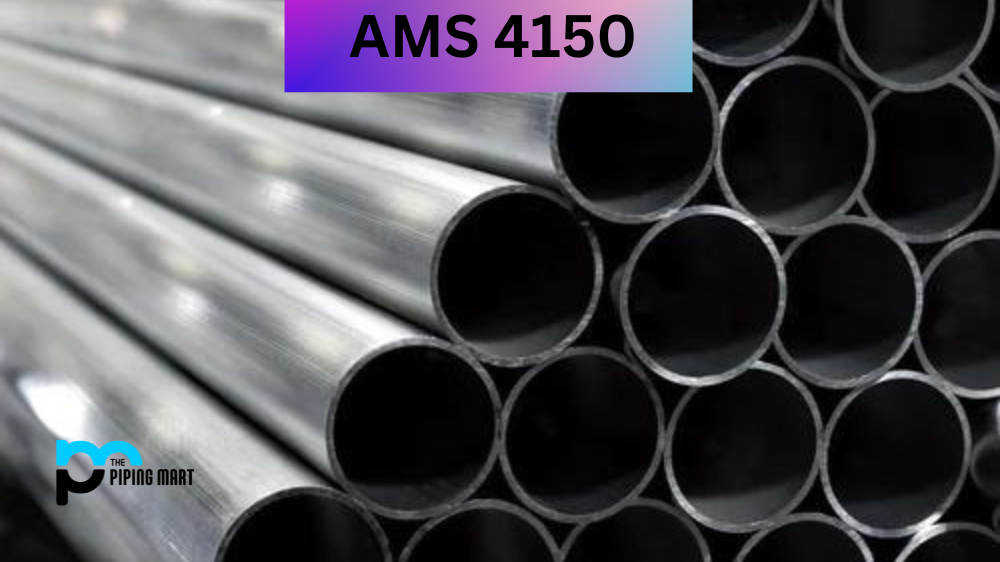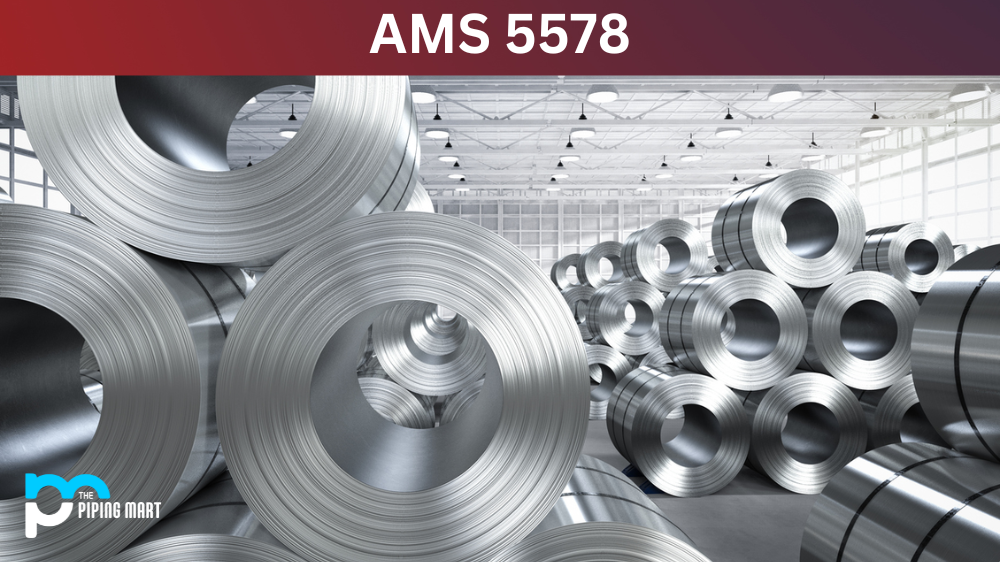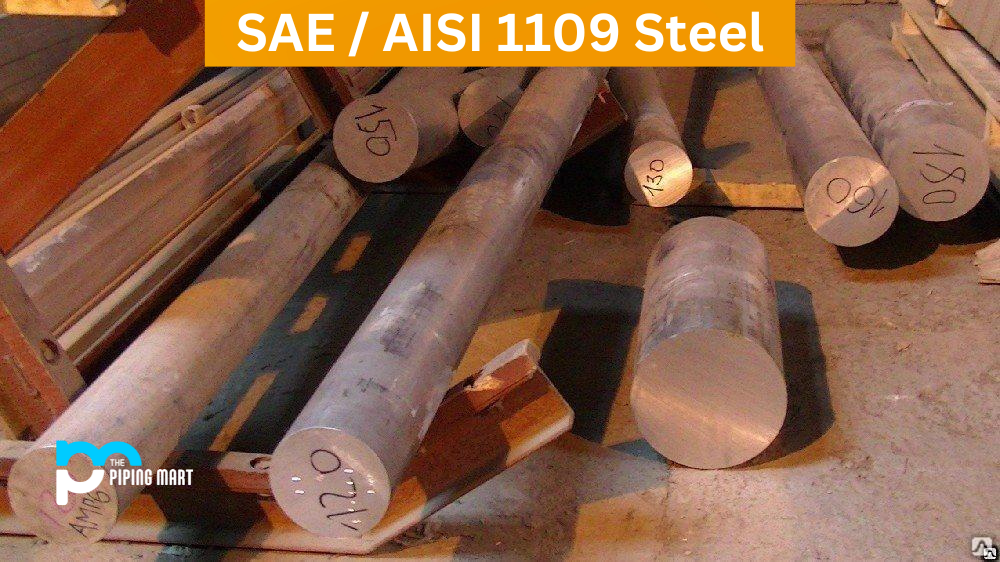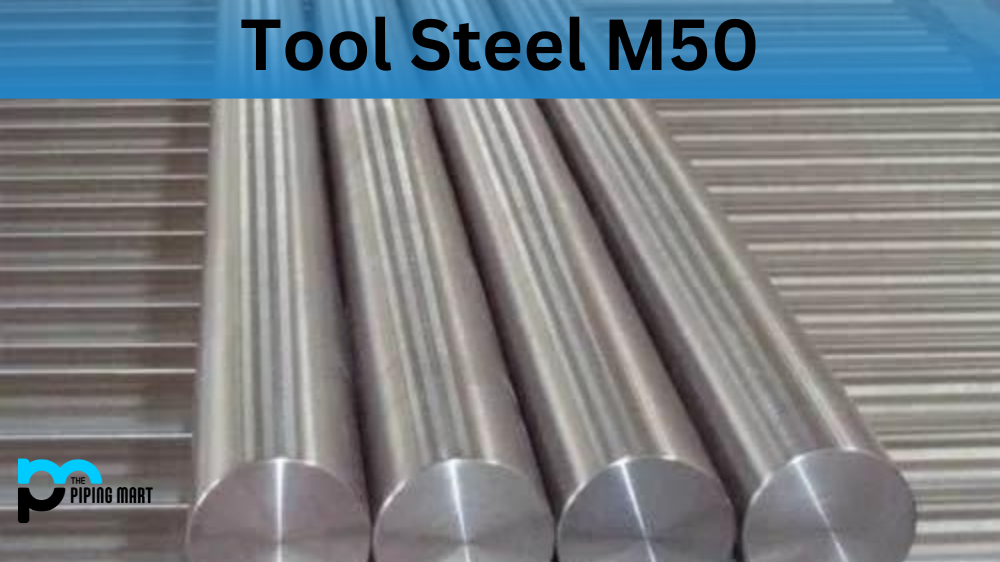AMS4150 is a widely used alloy of steel that finds its application in both the military and commercial aerospace sectors. It is known for its excellent machinability, high strength, and corrosion resistance. This blog post will closely examine the composition, physical and mechanical properties, and various applications of AMS 4150. So, let’s dive in.
What is AMS 4150?
AMS 4150 (also known as 6061 Aluminum Alloy) is a specification for stainless steel alloys used in the aerospace industry. This particular specification outlines the chemical and physical properties required of materials used to manufacture aerospace components, such as fasteners, fittings, and hydraulic systems. The specification also includes guidelines for testing and inspection, ensuring that the materials meet the stringent standards necessary for use in critical applications. AMS4150 is just one of many specifications used in the aerospace industry to ensure the safety and reliability of aircraft, making it an essential part of the aerospace manufacturing process.
What Form Is AMS 4150 Available at Piping Mart?
- Pipes
- Tubing
- Sheet Plates
- Pipe Fittings
- Forged Fittings
AMS 4150 Composition
AMS4150 is a low-carbon alloy steel containing chromium, nickel, and molybdenum. The chemical composition of AMS 4150 includes carbon, manganese, phosphorous, sulfur, silicon, chromium, nickel, and molybdenum. Additionally, it can also contain traces of copper, aluminium, and vanadium. The controlled amount of each element determines the strength, hardness, and flexibility of AMS 4150.
| Element | Content (%) |
|---|---|
| Aluminium / Aluminum, Al | 97.9 |
| Magnesium, Mg | 1 |
| Silicon, Si | 0.60 |
| Copper, Cu | 0.28 |
| Chromium, Cr | 0.20 |
AMS 4150 Physical properties
AMS 4150 has good tensile strength, high hardness, and excellent corrosion resistance. It has a density of around 7.85 g/cm3 and a melting point of 1413°C (2575°F). The thermal conductivity of AMS 4150 is around 24.2 W/m×K (167 BTU/hr-ft-°F), and its thermal expansion coefficient is approximately 11.5 µm/m×K (6.4 µin/in-°F). These physical properties make AMS 4150 suitable for diverse applications.
| Properties | Metric | Imperial |
|---|---|---|
| Density | 2.7 g/cm3 | 0.0975 lb/in3 |
| Melting point | 588°C | 1090°F |
AMS 4150 Mechanical Properties
AMS 4150 has exceptional mechanical properties, making it an excellent material for manufacturing aircraft components like shafts, gears, and engine parts. The alloy has a tensile strength of 1283 MPa (186000 psi) and a yield strength of 827 MPa (120000 psi). The elongation at break for AMS 4150 is 14%, and its modulus of elasticity is 200 GPa (29 Mpsi).
| Properties | Metric | Imperial |
|---|---|---|
| Tensile strength | 310 MPa | 45000 psi |
| Yield strength | 276 MPa | 40000 psi |
| Shear strength | 207 MPa | 30000 psi |
| Fatigue strength | 96.5 MPa | 14000 psi |
| Elastic modulus | 68.9 GPa | 10000 ksi |
| Poisson’s ratio | 0.33 | 0.33 |
| Elongation | 12-17% | 12-17% |
| Hardness, Brinell | 95 | 95 |
AMS 4150 Equivalents
| AMS 4117 | ASTM B247 | ASTM B429 | DIN 3.3211 | MIL G-18014 | QQ A-200/8 |
| ASTM B209 | ASTM B307 | ASTM B483 | MIL A-12545 | MIL G-18015 | QQ A-225/8 |
| ASTM B210 | ASTM B313 | ASTM B547 | MIL A-22771 | MIL P-25995 | QQ A-250/11 |
| ASTM B211 | ASTM B316 | ASTM B548 | MIL F-17132A | MIL T-7081 | QQ A-367 |
| ASTM B221 | ASTM B345 | ASTM B632 | MIL F-18280 | MIL W-23351 | QQ A-430 |
| ASTM B234 | ASTM B361 | ASTM F467 | MIL F-39000 | MIL W-85 | QQ WW-T-700/6 |
| ASTM B241 | ASTM B404 | ASTM F468 | MIL F-3922 | QQ A-200/16 | SAE J454 |
AMS 4150 Uses
AMS 4150 applies in various areas, from aircraft components to nuclear fuel rods. Because of its high tensile strength, AMS 4150 is preferred for manufacturing critical parts like landing gear, propeller shafts, and hydraulic pumps. It also produces gears, spindles, bolts, and studs. Aside from the aerospace industry, AMS 4150 is also used to manufacture pressure vessels, heat exchangers, and power plants.
AMS 4150 Hardness
AMS 4150 has high hardness, making it challenging to machine. However, the alloy’s excellent machinability makes the machining process easier, resulting in optimum compatibility with various tools. The typical hardness of AMS 4150 is 248-302 HB (Brinell hardness units).
AMS 4150 Heat treatment
AMS 4150 can be heat treated to increase mechanical properties like tensile strength and hardness. The alloy has good weldability, but heat treatment should be avoided after welding. The best-suited heat treatment method for AMS 4150 is annealing, where the material is heated up to 845°C (1550°F) and cooled down to room temperature to attain desired properties.
Conclusion
AMS 4150 material is an extraordinary steel alloy with exceptional properties, making it suitable for manufacturing aircraft components, pressure vessels, heat exchangers, and nuclear fuel rods. Its excellent machinability, high strength, and good corrosion resistance make it preferred in the aerospace industry. This blog post thoroughly explained AMS 4150’s composition, physical and mechanical properties, uses, hardness, and heat treatment. Understanding the properties and applications of AMS 4150 is essential to make the most out of this versatile material.

A passionate metal industry expert and blogger. With over 5 years of experience in the field, Palak brings a wealth of knowledge and insight to her writing. Whether discussing the latest trends in the metal industry or sharing tips, she is dedicated to helping others succeed in the metal industry.




